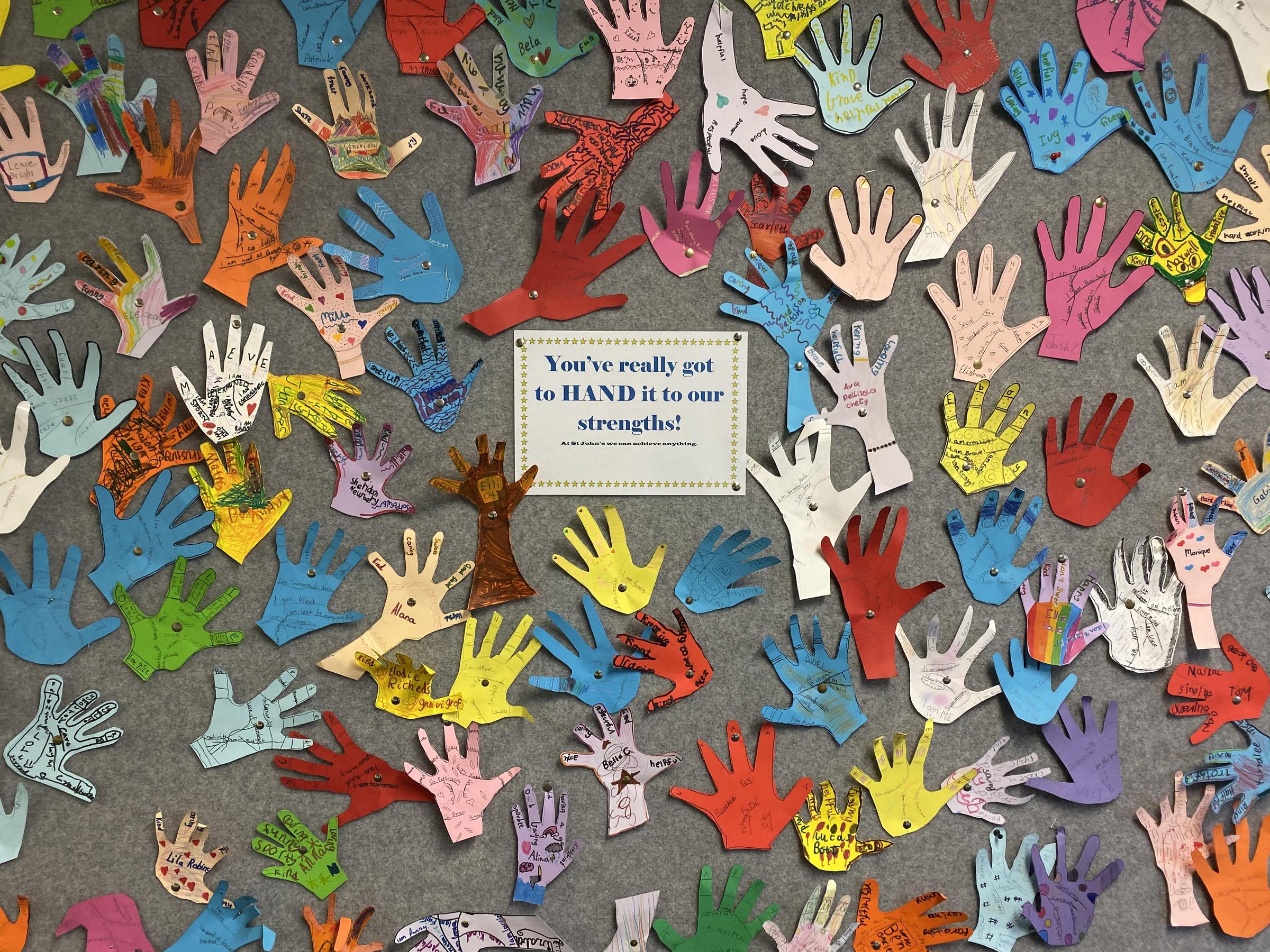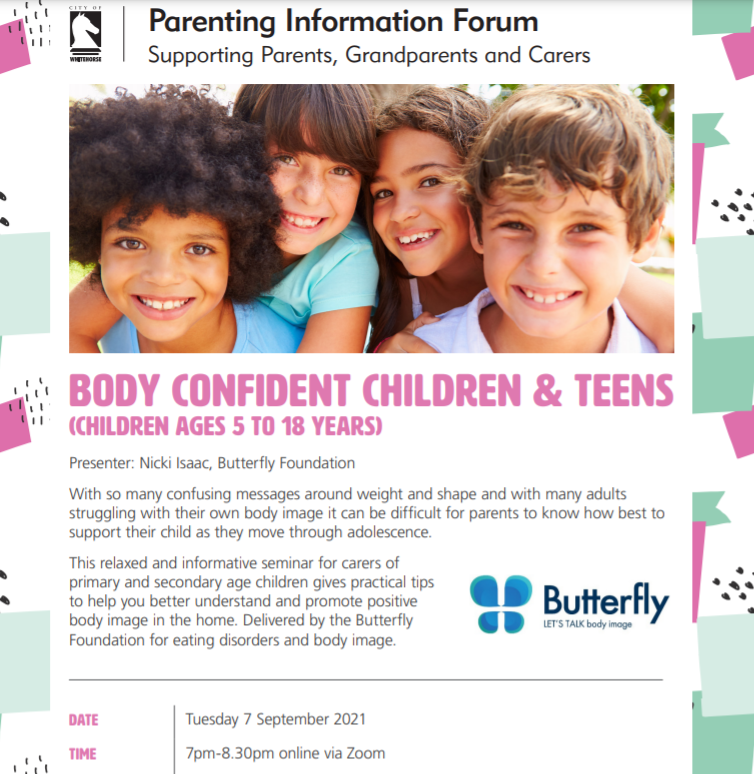
Wellbeing
Wellbeing Day
Thursday 19th August
Enjoy the day and take some time to focus on your wellbeing!
Here are a list of activities you might like to do:
- Mindful Colouring
- Cosmic Kids
- Mindful meditation
- Go Noodle
- Create your own joke book
- Write a letter to a friend
- Make a sock puppet
- Paint a picture
- Listen to your favourite music
- Go outside and ride your bike
- Play a backyard game of hide and seek
- Play with some lego
- Read a book
- Go for a family walk around the block
- Do some baking or cooking
We can’t wait to hear about the activities you get up to!
10 ways to get through the tough times
For children and adults
By Dr Andrew Wicking
We all have our ups and downs. The foundation to good mental health is the ability to manage worry and stress and remain confident, to sleep well, eat well, exercise and stay away from unhealthy substances. This means knowing when we need recovery time, time to think, time to re-shift priorities as well as time to stop thinking so much about ourselves and get out and play and help others.
1. Sadness is not always bad
Everyone loves being happy but being sad at times is not such a bad thing. Sadness gives us time for thinking things over, sometimes regretting things we have done, and helps us to resolve to be better people. Feelings of sadness, disappointment and setbacks are part of human lives and without them we don't live whole lives.
We all want our kids to be happy but know that there will be times they will be sad. Helping young people to know that they won't be happy all the time is important. Realising that all feelings pass and that we can learn from the whole range of feelings, sadness included, is part of being human.
2. Lower the amount of stress
Try to identify some of the major sources of stress in your life and develop systems to deal with them. If you can't avoid the stressful situations at least develop a de-compression strategy. This is a way of winding ourselves down after being revved up. Going for a walk, doing some exercise and being active are some of the best ways.
3. Find some good friends
Friends are a treasure. Along with family, having a few good friends that we can talk things over with enriches our lives and protects us in difficult times.
4. Eat healthily for what we eat changes our moods
Countries that eat low levels of fish have higher levels of depression. Fish contains a fatty acid known as EPA, which is lacking in those with depression. Fatty acids are also found in flaxseed, walnuts and chia seeds and are good fats. These are the good fats so if you are hesitant about eating them don't be. Whole grain oats have been shown to help with depression as they have folic acid and B vitamins and helps with a slow release of energy versus the crash and burn of blood sugar levels that can happen.
Foods high in selenium which is found in meat, fish and cereal grains has also been shown to decrease symptoms of depression. Leafy greens have magnesium in them which helps with depression and helps with sleep patterns.
5. Cultivate sources of "Flow"
We experience "flow" when we get involved in an activity that captivates us. At the end of these types of activities people often think, "Where did the time go?" There are many sources of flow - computer games, sports, drawing, dancing, reading, swimming and surfing are some. These are the things that you do that absorb you and take you away from your day to day cares and worries. Losing yourself in a few pleasurable activities that challenge you is highly protective against depression.
6. Belong to the karma club.
Decide to increase good will in the world by doing something positive for someone else. Try this out for one week. Pick someone you know and try to "knock their socks off" as much as possible. Give them compliments, greet them exuberantly and take time to be with them. You'll be amazed at how much benefit you get from increasing someone else's happiness.
7. Be grateful and lucky
Even people who have had rotten things happen to them can rise above them. They usually do this by deciding to be lucky. While we can focus on the things that have upset us, most of us have many things and people to be grateful for. Focusing on that part of your life and deciding that you are lucky makes an enormous difference to your life.
8. Get enough sleep and rest
Getting enough sleep is one of the most powerful ways we can protect ourselves against depression. The structures in the brain that support the most powerful anti-depressant, serotonin, are built and re-built between the sixth and the eighth hour of sleep.
Over 60% of people who sleep 5 or less hours a night end up obese and depressed.
If you are having difficulty sleeping: • decrease caffeine consumption late in the day,
• decrease sugar in your diet, • go to bed at the same time every day and wakeup at the same time every day., • avoid late nights, • avoid naps especially after 4pm, • avoid spicy, sugary or heavy foods before bedtime, • have the room at a comfortable temperature (some kids want to heat up the room, • and sweat the night away), • block out distracting noise, • don't sit in bed while studying get in the habit of reserving it for sleep, • warm milk before bed is good as it is high in tryptophan, which aids sleep, • try relaxation methods before sleeping, • write out a to-do list for the next day before getting into bed, •have a pre-sleep ritual e.g. reading or warm bath, • turn off all electronics especially phones.
9. Get some exercise
Exercise decreases stress hormones such as cortisol and increases endorphins (happy chemicals). Exercise also helps release dopamine,
adrenaline and serotonin, which work together to make you feel good. Endorphins are a hormone like substance, produced in the brain and function as the body's natural painkillers. During exercise endorphins can leave you in a state of euphoria with a sense of wellbeing.
The most effective type of exercise for the release of endorphins is
cardiovascular exercise and aerobics. Moderate exercise for 10 minutes a day is enough to improve your mood and increase energy, but it is suggested that you do 30 minutes per day.
10. Laugh more
Laughter raises our levels of serotonin and dopamine. Make a point of watching TV shows or movies that make you laugh. Share funny stories and jokes with friends. People report that laughing even when they don't feel happy improves their mood and sense of wellbeing.
Find this article and more at: http://resilientyouth.org/free-resources
Some extra support webinars Whitehorse Council are offering at the moment include:
Bookings: Registering your attendance is essential. Please book online on Council’s website www.whitehorse.vic.gov.au/events/body-confident-childrenteens-2021
Bookings: Registering your attendance is essential. Please book online on Council’s website www.whitehorse.vic.gov.au/events/parenting-anxious




